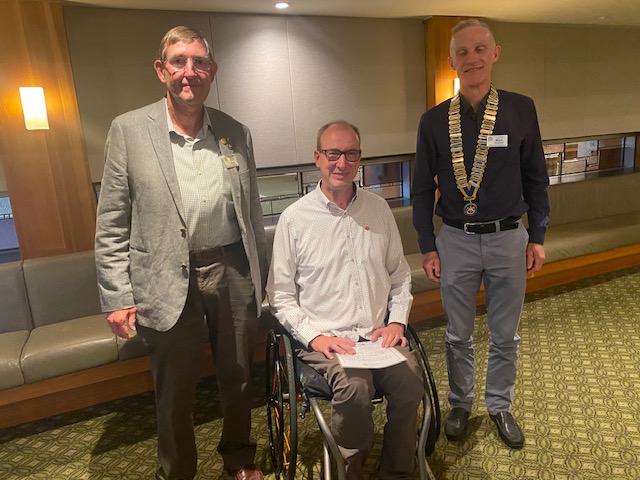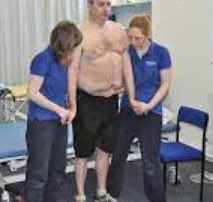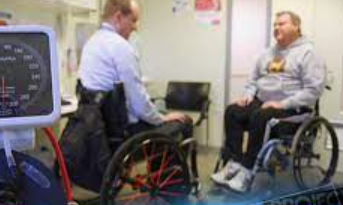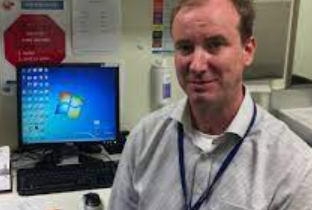
At our meeting last Tuesday, we were very fortunate to have as our guest speaker Dr Harry Eeman.
Harry was a young medical student when he was struck down by a severe form of Gillian Barre Syndrome whilst backpacking in Europe. One morning he woke up with double vision and then found that he was unable to walk without fainting. GBS is a condition where our own immune system — which usually attacks only invading organisms — begins attacking our own nerves. The exact cause of Guillain-Barre syndrome isn't known. The disorder usually appears days or weeks after a respiratory or digestive tract infection.
 PP Don Heath, Harry Eeman & President Mark Howlett |

 Harry spent the next 2½ years in hospital, 5 months of which were spent on a ventilator in an ICU ward in Brussels. He was paralysed in what externally presented as a coma-like state, except that he could hear those around him.
Harry spent the next 2½ years in hospital, 5 months of which were spent on a ventilator in an ICU ward in Brussels. He was paralysed in what externally presented as a coma-like state, except that he could hear those around him.
After years of rehabilitation, he recommenced his studies at the University of Sydney and completed medicine as a quadriplegic, the first in Australia. This required overcoming several physical and attitudinal barriers. Eventually he graduated with honours and subsequently completed two postgraduate medical specialist qualifications.
 Harry now hopes to be able to inspire people who face similar obstacles in their lives by working as a Rehabilitation Medicine Physician, who looks after people recovering from stroke, spinal cord injury, brain injury and people recovering from severe medical illness. He is also the lead doctor at Polio Services Victoria. He is now the Clinical Director of Pain Medicine at St Vincent's Hospital, where he and his team work to empower people suffering from chronic pain.
Harry now hopes to be able to inspire people who face similar obstacles in their lives by working as a Rehabilitation Medicine Physician, who looks after people recovering from stroke, spinal cord injury, brain injury and people recovering from severe medical illness. He is also the lead doctor at Polio Services Victoria. He is now the Clinical Director of Pain Medicine at St Vincent's Hospital, where he and his team work to empower people suffering from chronic pain.
 Harry also is a co-founder of Doctors with Disability Australia, an advocacy and support group for doctors and medical students facing challenges due to disability. He reflected on his own journey as a patient and a disabled doctor in a wheelchair. He is passionate about achieving equality and removing our society’s culture of low expectation for people with disabilities.
Harry also is a co-founder of Doctors with Disability Australia, an advocacy and support group for doctors and medical students facing challenges due to disability. He reflected on his own journey as a patient and a disabled doctor in a wheelchair. He is passionate about achieving equality and removing our society’s culture of low expectation for people with disabilities.